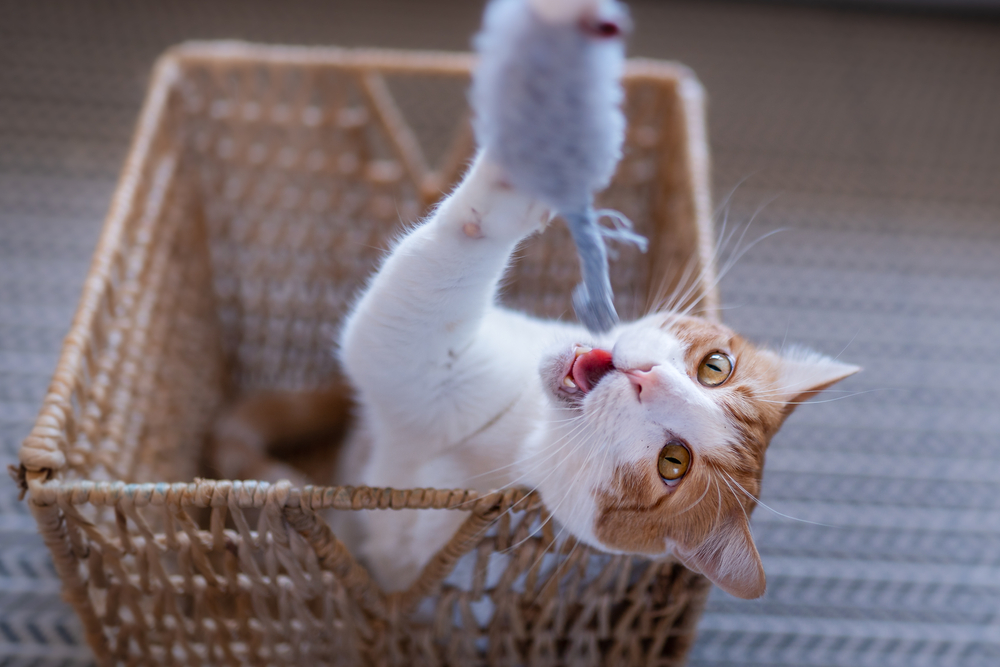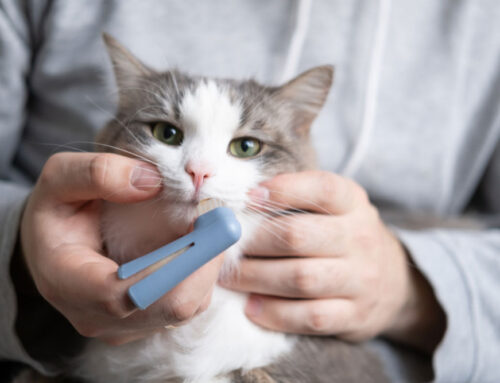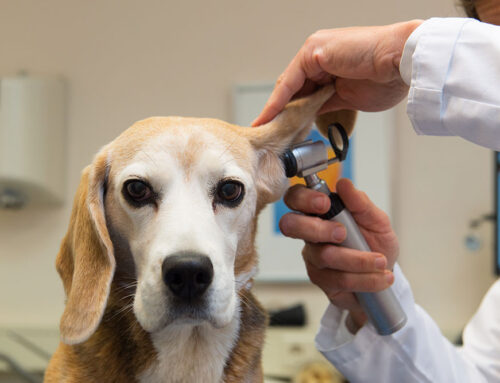Routine, non-emergency veterinary care is essential for our feline friends’ overall health. But why? We should visit our doctors routinely for check-ups and diagnostic testing, and our pets deserve the same treatment. If you’ve ever wondered why your cat requires regular preventive care, consider the following five reasons. Then, contact Palm City Animal Medical Center, and schedule an appointment for your feline friend.
#1: Cats are professional pain concealers
Cats are notoriously aloof, independent creatures who don’t care to show when and if they are feeling ill. This behavior is less likely attributed to their personality, but rather an evolutionary remnant that protected them from predation in the wild. Needless to say, most cats will not readily exhibit their pain until it becomes a big, unavoidable problem. But, during your pet’s routine examination, your Palm City veterinarian may pick up on hints that your cat is in pain, such as a quick wince when the sacrum is touched, or a growl during a thorough abdominal palpation. No cat owner wants their pet to live in pain—let us assure that your feline friend is feline good.
#2: Obesity in cats is a big, fat problem
Many pet owners find their furry friend’s weight gain endearing, and love that they look like a round fluffball. But, your pet taking every treat you offer doesn’t mean you are doing them any favors. In fact, obesity in cats can cause serious health problems, negatively impacting the endocrine system, the joints, and many other body systems. Our veterinary team is trained to assign your pet a Body Condition Score (BCS) based on weight and palpation of different body areas. You may be surprised that a 2018 survey found that nearly 60% of household cats were diagnosed as overweight or obese. When your cat receives regular care, we track your pet’s weight changes, and can provide weight loss recommendations before it becomes an immense problem.
#3: Subtle behavior changes could mean big problems
Perhaps you notice your cat visiting the litter box slightly more than usual. Or, maybe you are filling up the water bowl twice a day instead of once. You may not think twice about these seemingly innocent actions, but they are potentially important. We know cats are experts at hiding pain, but since they are often quiet and blend in the background, many subtle behaviors may go unnoticed. Some important signs include appetite, activity, or sleep/wake cycle changes, increased drinking, increased or difficult urination, stool changes, vomiting, or hiding more. Pay close attention to your cat during feeding times and when they visit the litter box, and make note of any abnormalities.
#4: Early detection is key when it comes to certain conditions
Hearing a diagnosis of cancer or a chronic disease is never good news. But, hearing it was found early can mean everything when it comes to treatment and prognosis. This is true of many feline diseases, which can be discovered early with regular examinations and diagnostic testing. For these reasons, we recommend all adult cats receive annual baseline diagnostics, to assess markers for kidney and liver function, diabetes, and other common conditions.
#5: A cat’s needs change over time

Our feline friends age much more rapidly than people, meaning their bodies may grow and change quickly in only one year. While your kitten may need a series of vaccinations and dewormings, your adult or senior cat may require annual anesthetic dental cleanings, or semi-annual thyroid testing. Ensuring your cat visits our veterinary team on schedule helps us determine how often they need care, based on their individual requirements. Also, if your cat develops new lifestyle habits, such as spending time outdoors, we may need to discuss microchipping, or additional vaccinations.
Whether you are the proud owner of a brand new kitten, or a seasoned senior cat lover, regular veterinary care sets your feline friend up for success—and a better prognosis. For more information about preventive healthcare for felines, look here, or contact our veterinary team. We look forward to caring for your cat through all their life stages.








Leave A Comment